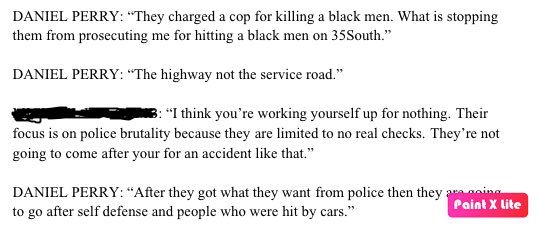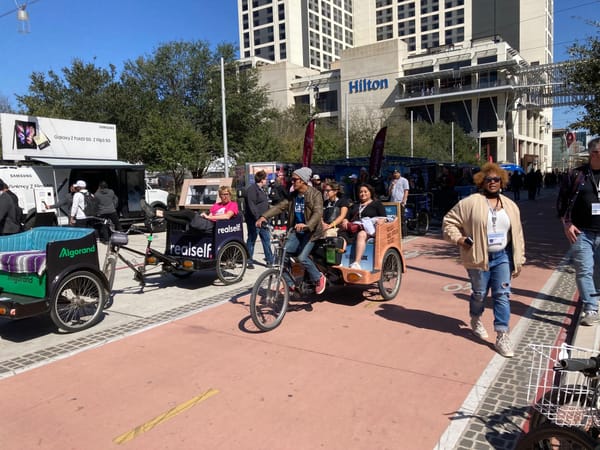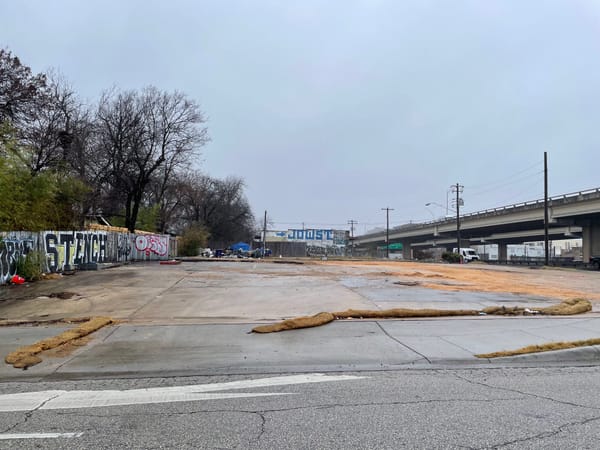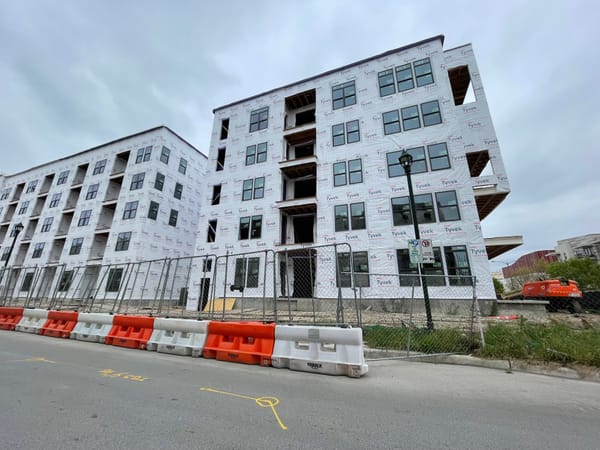A scary look at Daniel Perry's social media diet
It's depressingly normal in some ways.

The Planning Commission makes a painful choice in support of housing: You may recall that a few weeks ago the Planning Commission was presented with an unusual instance of developer v. developer combat.
Developer Alpha, surrendering to anti-density NIMBYs in Montopolis, sought to change their zoning from commercial to single-family (SF-3). Unfortunately, their request for single-family prompted opposition from a fellow developer that is planning to develop a major multifamily project next-door. Downzoing the land to single-family, she pointed out, would trigger compatibility restrictions that would substantially reduce the number of units she's able to build.
Last week, the Planning Commission voted to reject the downzoning. It's a tough pill to swallow for Alpha, which probably thought it had already bent over backwards to satisfy its opponents, but it's the right choice in terms of housing. By rejecting the downzoning, hopefully we'll be able to see hundreds of new units come online next-door.
The vote was somewhat unusual. A couple of the pro-housing types, including Awais Azhar and Patrick Howard, joined the more preservationy commissioners (Jennifer Mushtaler, Adam Haynes, Grayson Cox) in voting for the downzoning.
Hopefully we won't see a case like this again because hopefully the legislature will kill our compatibility regs!
We hate politics, we love politics: I was listening to an interesting conversation between podcaster Sam Harris and blogger Tim Urban the other day. Urban, whose website Wait But Why offers lengthy discussions of all manner of philosophical and scientific subjects, accompanied by stick figure illustrations, drew an interesting analogy between the Real Housewives reality TV franchise and modern U.S. politics.
Real life, said Urban, is generally quite boring, at least from the perspective of a television viewer. What makes reality TV fun to watch, even if it's about a subject as mundane as Orange County homemakers, is the selective and deceptive editing and some well-timed theatrics.
Similarly, politics or policymaking, is boring to most people. How many Americans could say anything of substance about the two massive spending bills that Joe Biden has signed into law during his presidency? How many cabinet members could they name? Or foreign leaders?
As our attention spans have shrunk, shouldn't our interest in politics have diminished as well?
And yet, the opposite has happened. Americans are more political than ever. We voraciously consume and share political opinions online. We feel so strongly about our political beliefs and identities that we increasingly can't bear to be around those who don't share them.
Why? Because what we're consuming from cable news and social media is as far from legislative politics as fast food is from gourmet cuisine or as pornography is from human sexuality. Or, as Urban put it, what we're watching is The Real Politicians of Washington D.C. The cast is made up of the most attention-hungry and polarizing figures in government and media who know and care little about public policy but are always on the hunt for tribal conflict. In this context, it's entirely predictable that a former reality tv star became president. Trump didn't create the culture, he leaned into it.
Local politics can feel like a nice refuge from the culture war carnival, but it's certainly not immune to it. In particular, the polarizing debate over law enforcement and homelessness has created toxic online echo chambers, full of people who know very little about city government but have very strong opinions about it.
Daniel Perry, the embodiment of online echo chambers: Court records released Thursday offer a glimpse into the paranoid echo chamber that Daniel Perry inhabited in the months before he fatally shot Garrett Foster in July 2020.
A couple outlets have already highlighted some of the comments he made, both online and in text messages. I read through all 80 pages yesterday and I was surprised by some of the things that have yet to make the news.
For starters, there are two instances of Perry corresponding with underage girls. In both cases, he gauges their interest in a relationship and asks one of them to promise not to send nude photos for fear of prosecution.
Several months before he killed Foster, he messaged a friend to say, "I killed a homeless man by accident. The police already know and they let me go."
Later, in a text exchange with a friend who he often debates police brutality with, he says that he's worried he's going to get prosecuted for it because the man he killed was Black:

He has many other text exchanges with the same person in which they discuss different scenarios in which shooting a protester would be justified or not.
In a discussion about an apparent shooting in Seattle, Perry raises a hypothetical that eerily foreshadows his confrontation with Foster:

This is the same story he told after he shot Foster. He claimed he made a wrong turn and he immediately called the police after the shooting, believing that that would serve as strong evidence of his innocence.
What's most striking about the Perry files is how familiar they feel. His paranoia about Black Lives Matter and his corresponding obsession with gun rights is a common template online. He hears the dog whistles from the likes of Trump and Tucker and translates them into a bark, repeatedly complaining about "black people" rioting or even posting memes lampooning interracial relationships or celebrating racial profiling (pg 12).
There's been speculation that all of this stuff will give Abbott pause about pardoning Perry. I'm not sure. I think if Abbott has an exit ramp, it's the conversations with underage girls, but frankly I don't think the racist comments will condemn Perry in the eyes of a governor who only cares about satisfying GOP primary voters.
You can read the whole thing yourself.




